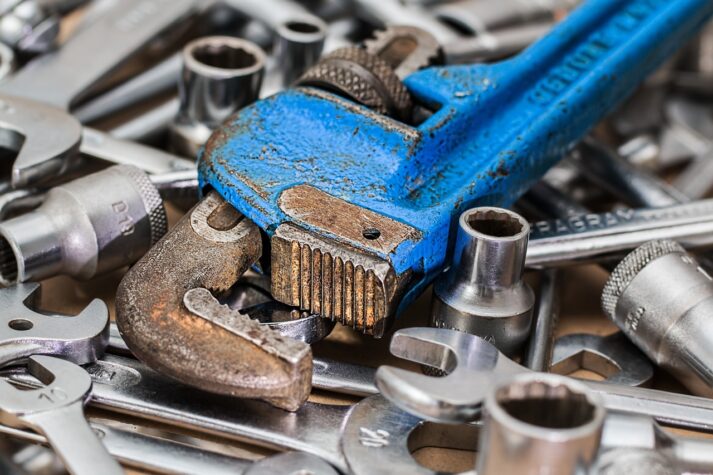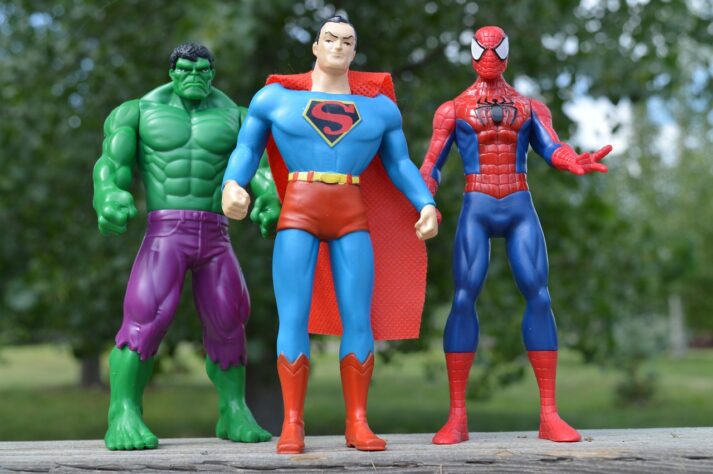This
post was originally published on
this siteOriginally posted at: http://www.nerdfitness.com/
My friend Mike was orphaned before he really got to know his parents.
Fortunately, he was was adopted and raised by a loving family. They didn’t have much, but they did whatever they could to provide for him. Despite growing up with these amazing people, Mike always felt like he didn’t belong.
He did what he could to hide his real feelings: that he’d never belong, that he’d always BE on the outside looking in, that nobody really appreciated him.
You see, the real version of Mike, the part he locked away inside, would terrify others. So he kept it bottled up and put on this act that everything is cool when inside he was deeply conflicted. I was fortunate enough to get to spend quality time with Mike, get to know him for who he really was, and I learned to accept all parts of him.
My other friend Jimmy is also an orphan surprisingly, though his path has been drastically different from Mike’s.
You see, Jimmy was born rich. Like, Scrooge McDuck rich. He WAS old enough to remember his parent’s accidental deaths, and it crushed him. Although all of Jimmy’s needs were taken care of (thank you, life insurance policy), this environment and upbringing created some challenges.
I’ve known Jimmy for years, and it’s been tough to watch him work through layer up on layer of destructive, obsessive, rageaholic behavior.
Like many of us, Jimmy’s been searching for meaning his entire life – everything else has been handed to him, and it’s left him unfulfilled. Who could blame him? So he needs more, thinking this will fill the hole in his heart, at all times.
Despite all the money, and toys, and attractive women, and success, there’s one thing he’ll never have:
Enough.
He is hurting internally, and yet he feels like he can’t share this with anybody. After all, nobody wants to hear about the problems a very wealthy, good looking person has, right? “Those problems aren’t real! Try not being able to put food on the table for your family!”
I’ve known both Mike and Jimmy since I was a little kid, and have grown up with them.
Two orphans with tragic lives, two very different upbringings, and real internal pain and shame that they feel they can’t share with anybody.
These tales might sound vaguely familiar to you.
You see, Mike’s real name is Clark. Clark Kent. Better known as Superman.
And Jimmy? That’s Bruce Wayne. Better known as Batman.
Superheroes are flawed. That’s what makes them interesting.

We all have superheroes that we love and relate closely to.
Have you noticed something about the best characters? The ones that are written so convincingly that we can’t help to become deeply invested in them as people?
They have critical flaws and tons of baggage that often sabotage their own efforts. Although they are superhuman, they are – with the exception of Superman – human.
And that’s what makes them interesting.
Every superhero that’s worth a damn has a strong character flaw or weakness. Superman’s weakness is kryptonite, sure. But really it’s that he will always feel like an outsider and feels an overwhelming obsession to save people who don’t appreciate or understand him. Batman’s weakness is the fact that he’ll never be good enough, never sacrifice enough, and never save enough people. Enough is never enough.
Let’s go across the aisle to Marvel, and we’ll find similarly flawed characters in Wolverine, Nightcrawler, and Tony Stark’s Iron Man. These guys’ flaws are very plain to see, and it’s what makes us love them. Hell, even squeaky clean Captain America only really became interesting when he was rewritten with some edge and… gasp… flaws!
How about female heroes like Black Widow? Natasha Romanoff was raised and trained as a freaking assassin and will spend the rest of her existence trying to right the wrongs of her past.
We love these flawed superheroes, because it makes them relatable, vulnerable, and REAL. It gives them an identity; as readers of comics or viewers of a movie, we get to look inside these people and know that they feel real pain too, and we see parts of ourselves in them.
We accept two things:
- These superheroes are fictional characters.
- There are parts of them I can relate to and learn from.
We accept these characters for who they are, and know that their flaws don’t define them but in fact, have shaped them into who they are.
Why, then, don’t we do this with our real-life heroes and ourselves?
Our heroes have flaws too

Are you familiar with the term “feet of clay?”
It’s an old term that refers to the construction of a statue – no matter what the statue is made out of (gold, silver, etc) or how well it’s reinforced… if the statue has a flaw like clay feet, it’ll still topple over just the same when pushed.
In psychology terms, it’s a term used to describe when we meet our heroes and realize, despite an otherwise impressive statue, that just like us, at their base they’re flawed and imperfect. Although we accept flaws and chinks in the armor of our favorite superheroes, we are told “don’t meet your (real life) heroes”. Why? Because that’s when we’ll learn that they don’t live up to the impossibly high standards we have set for them – leading to disappointment.
But I would argue that meeting your heroes and learning they’re human is significantly more valuable than continuing to put them on a pedestal and assuming they’re perfect.
When we compare ourselves to the idealized, public facing versions of our heroes – be they a celebrity, a blogger, sports star, or writer – we feel like they’re so special and that we’re incapable of doing what they’ve done.
Wrong. Our heroes are just like our superheroes! They’re people with flaws and baggage and anxiety, and that’s what makes them both relatable and interesting.
It also means that we can learn from them. They ARE us.
Let me share an example from my own life:
Tim Ferriss, 4x New York Times best-selling author, podcast genius, and the guy who pretty much owned the term “life hacking” is known by many as one of the most productive and successful people on the planet. You might have heard one of Tim’s podcast episodes or read The Four Hour Workweek (which was the impetus for me starting Nerd Fitness), and told yourself enviously, “I wish I could be like Tim” or “I wish I had Tim’s life.”
I have said to this myself many times over the past decade.
You see, I had created a superhero version of Tim in my head that wasn’t accurate – I didn’t have the full picture. It wasn’t until I read Tim’s posts like “Some Practical Thoughts on Suicide” and “Productivity Tricks for the Neurotic, Manic-Depressive, and Crazy (Like Me)” that I could see Tim for who he really was: a dude who had been thrust into the spotlight, doing his best to deal with it while helping as many people as possible, and he’s also dealing with a lot of shit that most people aren’t aware of.
I know this was incredibly difficult for Tim to share publicly, and I applaud him for it – I bet many were disappointed that the man they aspire to be didn’t “have it all”.
I bet even more had a different thought, however: “Oh shit, you mean he doesn’t live a perfectly structured life every day? That he TOO has days where he can’t get out of bed and struggles with vulnerability and anxiety and imposter syndrome? Me too!”
I had conversation recently with my friend Mark Manson, who writes and runs an absolutely fantastic blog at MarkManson.net – he’s also the best-selling author of incredible “The Subtle Art of Not Giving a F***.” He has a MASSIVE following (millions), has sold hundreds of thousands of copies of his book, and I can only imagine the amount of hero worship he gets on a daily basis. Mark told me about a guy who wanted to interview him for his “morning productivity hacks,” assuming Mark was superhuman and that his perfectly structured routines led to his success. Mark’s story made me laugh:
“Well, I wake up between 9 or 10AM, because I was up late playing Overwatch. And then I lie in bed and check Facebook and my email. Then I sit down at my computer, drink a Redbull and mess around and then try to get some meaningful work done. Sometimes it happens. A lot of the time it doesn’t.”
Your heroes don’t succeed because they don’t have flaws. They succeed in spite of their flaws, or BECAUSE of their “flaws”. I’m thankful to Mark and Tim for opening the door and showing people that their lives aren’t flawless – that they too are real people who sometimes have bad or unproductive days.
The point I’m trying to make is this: Your heroes are not perfect robots. They have messed-up lives, crippling anxiety, depression, and baggage, just like you. And they have found a way to move forward and achieve their goals.
The more we can look honestly at our heroes and realize they’re just like us, the more we have to look internally at our own flaws and own them…and then succeed in spite of them:
- That “supermom” with 4 kids who stays in shape? She has flaws too and succeeds despite dealing with a formerly abusive husband and a fear of abandonment.
- That guy at the gym you wish you looked like? He hates his home life and is hiding behind steroids and another set of bench presses to find his happiness.
- That author who you wish you could be like? He’s a recovering alcoholic and writes to heal the pain in his heart from a lost child.
We all have baggage. Our superheroes. Our heroes. And ourselves.
Welcome to the club!
Unpack your Baggage: Guilt vs Shame
Brene Brown, vulnerability expert, author, and courageous woman whose TED talk has been viewed 28 million times, has become known for a very important topic:
The difference between guilt and shame.
When we eat bad food (or binge watch TV, or date a revolving door of men/women, or drink a case of beer, or pop a few pills) to escape, when we hide behind a mask of anger, lash out, or retreat further into isolation… it’s oftentimes due to shame and not knowing how to deal with it. As we’re unpacking our personal baggage and taking ownership of it, our reaction will fall into one of those two categories (guilt and shame).
One is significantly more constructive than the other.
In her words:
Shame is a focus on self, guilt is a focus on behavior. Shame is, “I am bad.” Guilt is, “I did something bad.” How many of you, if you did something that was hurtful to me, would be willing to say, “I’m sorry. I made a mistake?”
How many of you would be willing to say that? Guilt: I’m sorry. I made a mistake.
Shame: I’m sorry. I am a mistake.
Shame is highly, highly correlated with addiction, depression, violence, aggression, bullying, suicide, eating disorders. Here’s what you even need to know more: Guilt is inversely correlated with those things. The ability to hold something we’ve done, or failed to do, up against who we want to be is incredibly adaptive. It’s uncomfortable, but it’s adaptive.
Whatever has happened to you in the past; whether it was something you did or something that was done to you, please understand the difference between guilt and shame – apply your thoughts to the action, not your identity:
“I ate an entire pizza today and sabotaged my diet this weekend. I am a failure and a waste of space.” = shame. Not healthy.
“I ate an entire pizza today and sabotaged my diet this weekend. I can’t believe I did that. That was stupid of me.” = guilt. Healthy (though still painful).
Guilt can be constructive and uncomfortable, while shame can be destructive and cause us serious damage. When we’re shameful of our behavior, it can cause us to feel even more shame, and thus seek more quick fixes, or avoid the problem, or sink even deeper into a hole, which we then get ashamed of as well.
It’s a horrible feedback loop that we can get stuck in.
Remember, flaws are nothing to run away from or harbor shame for. Our heroes are flawed, and that makes them human.
So are you. And so am I.
Let’s own it.
I want you to say this to yourself: “No matter what I’ve done up to this point, I am deserving of love and happiness. I am NOT a lost cause. I will hit roadblocks and struggles and challenges, and make mistakes and screw up and do stupid things. I can forgive myself for those things, and move on from them. My heroes are flawed and broken, and so am I. If they can succeed, so can I.”
Become your biggest fan. And then get to work by taking responsibility.
Take responsibility for your baggage

Just as we can forgive ourselves for actions we’ve taken, judgment-free and shame-free, we can take ownership of our baggage too. Just like our heroes, we must succeed despite our flaws and issues.
One of the articles I’m most proud of writing is about “Personal Responsibility,” the most important trait somebody can develop if they want to start living a better life.
Yes. The baggage that you carry around might be AWFUL:
- You might have really unhealthy parents who taught you sugar was a food group.
- You might have been in terrible, abusive relationships.
- You might have been abandoned by one parent or both.
- You might have been screwed out of a job you deserved.
- You might have a horrible physical ailment or mental illness that is genetic.
- You might have been born in a certain country, of a certain sex, or into a certain religion, that you didn’t choose and have struggled in today’s society as a result of.
Many of these things might not be your fault. Like Bruce or Clark, we are raised in a certain way and don’t get to pick our parents or our upbringing or the tragedies that have befallen us. We’re products of our environment and upbringing and genetics, and it all mixes together in a really weird way.
These things can cause us to feel shame about our place in life, retreating inward, lashing outward, and feeling like a victim or martyr who is doomed to stay stuck because ‘my problem is unique and unsolvable.’ We look for somebody to blame, and we assume our heroes are only where they are because they don’t have the problems we do. And so, we don’t take action, because “we can’t fix it” … the problem is somewhere else.
If you’ve spent any time on the internet lately, you know that victimhood of any kind is IN!
It’s where the money is. Controversy and outrage put asses in seats and bring traffic, page views, and advertising dollars. We’re constantly being reinforced and taught that anything in our life that offends us is somebody else’s problem (shame on them).
It’s that tiny voice in our head that is screaming (and being rewarded): “THEY NEED TO KNOW THEY HAVE OFFENDED ME. I FEEL WRONGED. WE MUST PUT THEM IN THEIR PLACE. IT’S NOT OUR FAULT.”
I don’t say this to make light of the real challenges many have faced, but rather highlight a growing epidemic that freezes us from taking action and improving our situation.
When the voices in people’s heads telling them “I am a victim” is being nurtured and reinforced, when every article or post is an opportunity to be offended and outraged, and when we’re lashing out because we are offended (for ourselves or others), it’s minimizing the impact and help needed for people who truly are victims and need help.
Now, readers of this blog get offended at me all the time and have NO problem chastising me! Telling people to move more, eat less, find more time in the day, build systems to set oneself up for success, prioritizing health, and minimizing distractions seems fairly straightforward and inoffensive.
After all, these people chose to come to Nerd Fitness most likely because they’re looking for guidance on fixing part of their lives.
Regardless, we ALWAYS have people who rush to tell us how insulting the article was: they can’t change because of ___. And sure, they have a darn good reason or a serious problem they’re dealing with! But they’re choosing to be offended and insulted by our words while the other 99% of the population is choosing to say “okay, how can I apply this to my situation?”
All change comes from recognizing something we didn’t see before, and then changing our behavior because of this new insight. When we choose to see the world with this outrage/victim lens, we’re essentially solidifying the idea to ourselves that: There’s nothing I’m not seeing, there’s nothing I can do differently, the problem is somebody else’s. It does not apply to me.
Instead of CHOOSING this mentality, we need to take ownership for everything that has happened to us, both good and bad. This is a radical departure and a serious challenge that flies in the face of prevailing society these days.
The truth is this: you already have all of the tools you need to succeed/lose weight/make meaningful changes in your life.
That might be painful to read. That tiny voice in your head probably just yelled at me. If you can not react to that voice, and instead look at the situation without judgment, you can also decide that you don’t need anybody’s permission to change your mindset or your situation.
After all, the fact that you’re reading this means you are one of the luckiest individuals to exist in human history.
No, not the fact you are reading THIS article (I’m just a nerd who writes about Star Wars and push-ups in his underwear), but the fact that you exist in this year, 2017, with access to a computer and internet and modern marvels.
Life is AMAZING.
You don’t live in a cave! You have access to electricity! You most likely will not be eaten by a lion tomorrow! Or the next day!
The next part sucks, but it’s essential for growth: When you stop being outraged and assuming your problems are unique, and instead go: “Okay, this is the chaos I’m dealing with. What can I do about it?” you give yourself permission to pick yourself up by the bootstraps and take ownership.
There is somebody out there with your problems who has the life you want. This is great news. This is when change can happen.
You have everything you need to succeed already.

Accepting responsibility is tough as hell, because the alternative is WAY easier!
- If we tell ourselves we’re a lost cause at getting in shape, it makes it easier to sit on the couch, play video games, and eat pizza.
- If we tell ourselves that there are no good men or women to date, it makes it easier for us to justify not trying or potentially getting hurt, not being social, suffering through a lot of bad first dates, and instead sitting at home on a Friday.
- If we tell ourselves there are no good jobs out there, it makes it easier for us to blame Obama/Trump, the economy, and stay on unemployment or living with our parents and stop sending out resumes.
Did one of those sentences above made you angry? Maybe even… outraged? That little voice is saying, “HOW DARE YOU STEVE. You’re wrong because [reason I’ve been telling myself for years].
We tell ourselves these stories to stay safe and stay in our comfortable misery. We get offended so that we can pass responsibility onto others and justify inaction or failure.
As I said before, it might not be your fault that something has happened to you, but it’s time to realize that it’s your responsibility to deal with it. Mark Manson said it best in his book:
“a baby showing up on your doorstep certainly isn’t your fault, but suddenly it’s your responsibility to deal with it.”
What if you lived life as if everything was your responsibility to deal with?
I recently had a conversation with a long-time member of the Nerd Fitness community. He let me know that he was disappointed in Nerd Fitness, because after four years he was still unhealthy and overweight because I hadn’t written anything that had inspired him to change yet.
I knew the guy well enough and replied, “Hey man, we all have baggage. You’ve been waiting around for four years and nothing I’ve written has motivated you to change…maybe we’re not the problem? You have all the tools you need and a supportive community. Have you given yourself permission to take responsibility for your success? What specific action are you taking today to improve yourself?”
He got very mad at me and told me off, only to email back a month later with a “You’re right. I know what I need to do, and I’ve been using my medical condition as an excuse. I’m going to take a more active role in my health.”
Bruce Wayne didn’t choose to have his parents killed. Neither did Clark Kent. Natasha Romanoff was brainwashed at a very young age to become an assassin, and she has to atone for that for the rest of her life.
You probably didn’t choose to have [very real problem] or [genetic condition] or [serious obstacle] or [life altering challenge] happen.
But if you stop being outraged, stop deciding you’re a victim, and instead operate under the philosophy that your life as it is right now is 100% your responsibility to deal with, that you are not owed ANYTHING, then you can also realize that you already have EVERYTHING you need to take action on the problem.
I’m already prepared for responses from people who skim this article, with their defensive shields already up, saying things like: “Steve this is very insulting and you don’t understand, because you are [blank] and [blank] and [age]. Shame on you, and I’m offended because [this reason] and [this reason] and you can’t possibly know what I’m going through. I can’t [lose weight/change/get out of this relationship/eat better] because [valid reason].”
These are often the people with the most to gain if they realize they have ALL the tools (and the responsibility) to start dealing with it RIGHT NOW. That many people have succeeded in similar situations as them. That their problems are not unique. Which means it IS solvable.
If this sounds like you, stop taking pride in your baggage, stop proudly being the victim/martyr subconsciously. Instead of indignant, outraged, and unhappy, be responsible.
It’s what our heroes do.
We all have flaws. We all also have super powers.

Here in the Nerd Fitness Rebellion, we are all disasters. We all feel shame. We all feel guilty.
We are all broken.
Welcome to the island of misfit toys.
Like any motley collection of superheroes, we all have baggage that keeps things interesting. At the same time, just like the X-men, or the Avengers, or the Justice League… along with those flaws we also have superpowers.
Things we can do that nobody else can. Things that we’re better at than others without thinking about it. It might be compassion, empathy, humor, or inclusiveness. It might be a knack for a certain skill or aptitude. Things that if we spent more time focused on, it would make our lives better and the world will be better.
Regardless of how many bags you’ve packed to come here, welcome!
This is a community where you get to be yourself, where you can learn the difference between shame and guilt, and it’s okay to be vulnerable while you work through your shit.
We forgive ourselves.
We know we’re human and that no action we take is something that permanently defines us. Like any superhero, our journey is long and winding, and we have to find our way through the darkness.
We also accept personal responsibility for our place in life and our future.
It might not be our fault where we are right now, but it’s our responsibility to deal with. We choose to not get offended and not to use that to be a victim or martyr. We know that everything is written to offend or to make people feel like victims, and we’re going to stop letting this rule us.
We choose to allocate our brain power to better things.
If this article made you offended and angry and you want to yell me at me for not understanding your particular situation because I’m A, B, and C and you’re X, Y, and Z, no worries! Take a break. We’ll be here if you change your mind in the future.
If you’re ready, willing, and able to accept responsibility, judgment free, for where you are in life…
Welcome to the Rebellion.
You have what you need. You don’t need somebody else’s permission to start. You can choose to stop being a victim. You can be your own hero. And we’re here to support you on that journey. You can solve your own problems, and we’ll be your sidekick cast of supporting heroes ready to step up at every turn.
If you’re in, I’d love to hear from you below:
- What’s one thing you’ve felt shame over that you can re-attribute to non-judgmental guilt: “I did that thing. I can work on that.”
- What’s one thing you’ve felt victimized by in the past that has kept you prisoner, and how can you accept responsibility for dealing with it?
- What is your superpower? What’s something that you do really, really freaking well? That you can succeed with despite the other parts of you?
-Steve
###
Photo: Daniel Kulinski: Crack, Miguel Discart: Hero Shelf















 For now classes are 6pm and 640pm at 2840 Wildwood st in the Boise Cloggers studio.
Book your class NOW!
click this ==>
For now classes are 6pm and 640pm at 2840 Wildwood st in the Boise Cloggers studio.
Book your class NOW!
click this ==>








